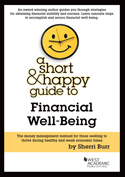by Sherri Burr
Recently, fortune blessed me with the opportunity to watch live tennis at a high-level tournament in Ohio. As I observed tennis star Serena Williams fight back after losing the first set to win the next two sets and claim the match, I thought about how much we writers can learn from her determination to succeed.
Just as tennis players face the constant threat of losing points, games, sets and matches, we writers often confront rejection. Author Gregg Levoy (This Business of Writing) once told a SouthWest Writers audience that if you are not constantly receiving rejection letters, you are operating too far into your comfort zone. I initially thought this harsh as no one wants to receive rejection letters. But his larger point resonated. If you constantly put out work that gets accepted, perhaps you are not challenging yourself to go to the next level. Are there higher levels of publications that you have not submitted to for fear of rejection? This is like the tennis player who only plays players who are worse than they are. Where’s the test? Where’s the opportunity?
By daring ourselves to query top book and magazine publishers, we increase our risk of rejection but we potentially set ourselves up for great rewards. Tennis players know that if they want to win the big tournaments, the Grand Slam events, they have to constantly improve their games. This requires honest assessments of weaknesses and strengths. Do they have an accurate serve, which allows them to claim free points? Or a weak serve that leads to double faults? Do they have a lightning-accurate forehand, or one that constantly sails long? Is their backhand hit with power, or does it soft-land on the other side of the net and permit the opponent to hit a punishing return?
For writers, do we write articles with humor, or do our attempts fall flat? To predict an audience’s reaction requires test driving the material. This is where critique groups that require writers to read their submissions can be absolutely critical to writer success. As you deliver your words out loud, you can obtain an instant reaction as to whether the material is hitting the intended emotional cues. If your critique group members react by laughing out loud or crying, then you know you are hitting the right level. If there is no reaction, then you know you have to go back to the drawing board.
This is why I prefer critique groups whose members read the material compared to those who pre-send the material by email and then discuss it when the group meets. In the former, you can instantly see the reaction. In the latter, the person might tell you they found something funny but you won’t know how funny. Were they falling out of their seat with laughter or did a bemused look cross their brow?
Similarly in tennis, a speed gun measures the serve. Players don’t have to guess how fast a serve was, they know. After Croatian player Marin Cilic won the 2014 US Open, he was interviewed about his suspension for four months during 2013 for having a banned substance in his urine tests. Cilic used the time to practice his serve and to work on finding the enjoyment in his game. Others might have spent the four months in “woe is me” mode. Instead, Cilic used it as an opportunity to improve.
When life gives an opportunity to remove ourselves from the normal and reassess, take it as a golden opportunity to improve. Examine weaknesses and strengths. Find the fun in your work. That’s where long-run success lies. That’s where the willingness to fight in difficult moments arises. At the Ohio tournament, Serena Williams battled from a set down to win the semi-final match against Caroline Wozniacki. She won her next match in straight sets and the U.S. Open for the sixth time by beating the same opponent in the finals. Williams took note of her earlier struggles and improved her game.
For writers, progress can come from reading and writing daily, as well as signing up for writing courses. When writing is fun, abandoning your life’s work never enters your mind. You commit to fight until the last letter is struck on your keyboard. Writers don’t retire; the ideas keep flowing until they take their last breath. Challenge yourself to submit to different publishers. The successes may surprise and amaze you.
 Sherri Burr is the Regents’ Professor of Law at the University of New Mexico School of Law where she teaches Entertainment Law, Intellectual Property Law, and Art Law. A graduate of Mount Holyoke College, Princeton University, and the Yale Law School, she has authored or co-authored 20 books, including A Short and Happy Guide to Financial Well-Being (West Academic, 2014). Sherri is also a long-time member of SouthWest Writers and a regular contributor to the organization’s newsletter SouthWest Sage.
Sherri Burr is the Regents’ Professor of Law at the University of New Mexico School of Law where she teaches Entertainment Law, Intellectual Property Law, and Art Law. A graduate of Mount Holyoke College, Princeton University, and the Yale Law School, she has authored or co-authored 20 books, including A Short and Happy Guide to Financial Well-Being (West Academic, 2014). Sherri is also a long-time member of SouthWest Writers and a regular contributor to the organization’s newsletter SouthWest Sage.
This article was originally published in the October 2014 issue of SouthWest Sage and is reprinted here by permission of the author.


